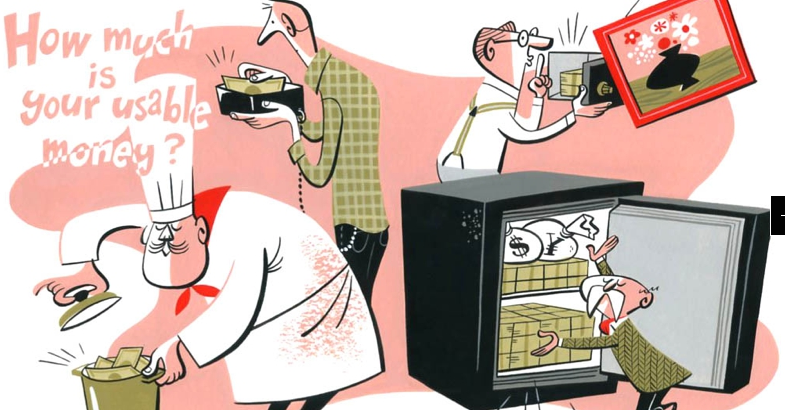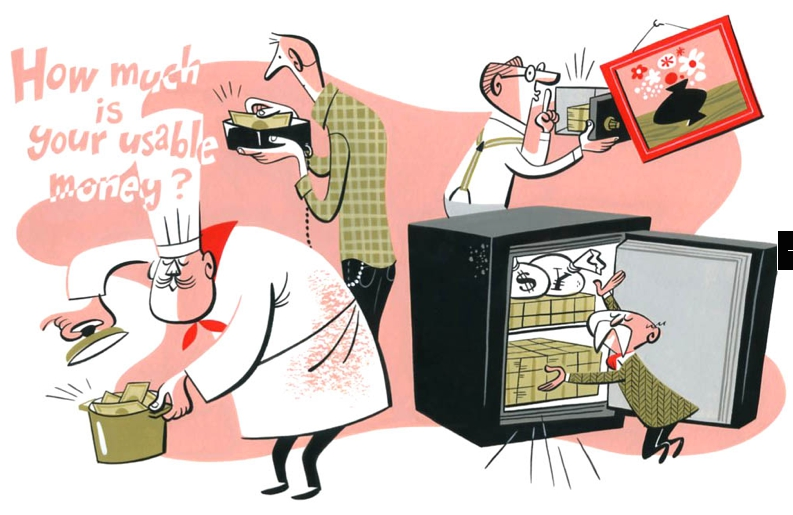The immediate devastation of the demonetization campaign saw some adapt to the challenge, while some suffered. The nature of the job and form of payment is a large factor that governs a person’s experience with the initiative. A Bihari family explains how they tried to overcome this financial obstacle.
This is an age where technological development is forced upon those who are not ready to adapt, in the name of raising their standard of living. A local example is Indians feeling the cash crunch that was left in the wake of Modi’s demonetization drive. However, their interaction with digital cash and their responses to a ‘cashless economy’ differed. In Bangalore, ATMs ran out of cash very quickly even after they’d just been refilled, and the queues were long. Men and women in these queues found other avenues to get their hands on cash, while a large section of people seemed unaffected. How is it possible not to be affected by such a drastic measure that impacted millions?
To understand how a person’s job and its nature impacts his/her experience with demonetization, we look at how a Bihari family’s members adapted differently. Mukesh Kumar’s extended family is from small villages near each other in Bihar, but they all moved to Bangalore in the early 2000’s. The men work as watchmen, drivers and carpenters while the women, fewer in number, work as housekeeping staff and cooks. Their family is intriguing to look at in this situation of a cash crunch –they live near each other but have coped in totally different ways because they are involved in different occupations.
“For me it didn’t matter a lot because my purchases are very limited -I try to save a large portion of my salary to send it back to my family”, says Mukesh, who’s left the rest of his family in Bihar and come to Bangalore to work as a watchman. “I didn’t need to use digital cash because my salary is paid in cash, thankfully, and I don’t go out to eat at restaurants or anything like that”, he adds. So, for him, the idea of a cashless economy is almost unthinkable, and he maintains that he would find it extremely challenging if it is realized.
Still, Mukesh seems to be unaffected since he is being paid in cash, so the credit goes to his employers, but his cousin Bipin has a different story. “I work as a carpenter so I have many clients, unlike a watchman who is paid by the building organization where he works. Payments for my major work start around 500 rupees and people didn’t have the cash, so I was forced to open a PayTM account. Now it is better and many pay me in cash”, Bipin remarks. However, Bipin struggled to get a hang of the technology because he wasn’t familiar with smartphones. “I always had the regular phones, but now I was forced to invest in a smartphone and learn to use it, otherwise my business would die out. I struggled at first but it was worthwhile”, Bipin says with a smile.
Surprisingly, the demand for carpenters didn’t decrease even though people didn’t have cash to pay them. Bipin smirks and says that customers who hired other carpenters came to him because his competitors couldn’t adapt to the technological leap required to be taken. As of now, cashless payments has benefitted him, but he remarks that once others adapt, it won’t be profitable anymore. Selvi, a woman who cleans houses in the building where Mukesh works, wasn’t able to adapt as quickly. She reports that the families that hire her asked to pay her in digital cash and she refused. “I don’t even have a bank account, so how can they give me digital cash? Some of my monthly payments were postponed for a few days because the families didn’t have money”, Selvi says. “My husband asked me to open a bank account to prevent this, but I don’t trust anyone else with my money, I would rather keep the cash on me at all times, and don’t want anything to do with cashless payment”, she says confidently.
Selvi isn’t alone in not trusting the banks with her money and in being firmly against a cashless economy. Mukesh doesn’t have a bank account either and doesn’t believe in keeping money with the bank. “My other cousin, Mangal, lost some money by putting in the bank. I am not taking that chance”, Mukesh says. Mangal, however, admits that he’d made a mistake while transacting. “It was my first time putting my money into the bank. I run a small hotel so I had a lot of small change, and I misplaced a bag of coins on the way to the bank, and didn’t find it when I went back”, he says, “my cousins think that the government or the bank stole my money and they are scared now.”
Mangal’s Bengali food eatery has been running low on customers. “People don’t have money to pay so they don’t come to eat. I used to serve labourers and workers, but their employers are having trouble paying them. So my customers don’t have money to eat here”, he says, dejected. His part-time job as a driver has picked up since his clients pay him digital cash. “I have a bank account so my driving payments are transferred to my PayTM. Labourers I used to feed don’t have these facilities to pay, so my hotel business has suffered. So I don’t know whether this digital cash is good or not –for me it is both profit and loss. “.
A family like Mukesh’s is navigating past whatever is thrown at them, but others might not be as lucky. To keep their jobs, people are forced to adapt, despite some being incapable or not ready, and several people end up suffering. The idea of a cashless state is difficult to fathom for large sections of those who deal in cash. In many cases, these are people who don’t want or require the technological ‘upliftment’ promised to them at all, but they have to adapt quickly, or pay the price.
Rishabh Mansur
Latest posts by Rishabh Mansur (see all)
- Navigating the Cash Crunch - 6th March 2017






